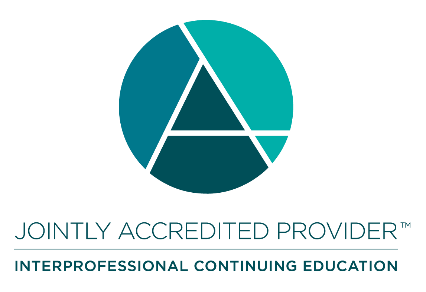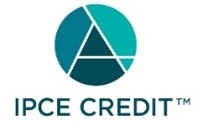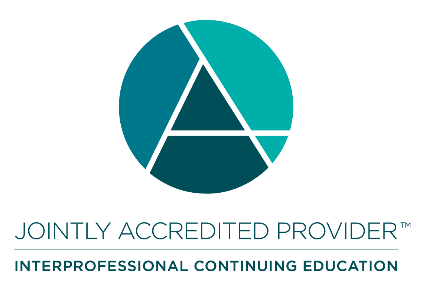Traumatic Brain Injury: Overview and Clinical Practice Guidelines for Patients with Military Backgrounds

Emotional and behavioral changes are extremely common after a traumatic brain injury (TBI). These affective and behavioral disruptions are often considered by patients, family members and providers alike to be among the most problematic long-term effects of TBI. There is considerable overlap between the direct effects of a TBI and common co-occurring psychiatric conditions such as depression, posttraumatic stress disorder and substance use disorders. This symptom overlap can present significant challenges to identifying appropriate treatment goals and interventions.
This presentation will provide an overview of the most current guidelines for evaluation and management of symptoms across the TBI severity spectrum, the physiological and psychological mechanisms that can impact recovery, and will include discussion of comorbid conditions that may further complicate diagnostic clarity. A rationale for multidisciplinary approaches to symptom management will be presented. Unique considerations for supporting Veterans and active-duty Service Members will be reviewed. Throughout the presentation, best practice guidelines will be provided to help patients and providers optimize outcomes and quality of life following a TBI.
This course is offered at no-cost to learners.
Learning Objectives:
At the end of this program, participants will be able to:
- Describe physiological and psychological mechanisms underlying the effects of traumatic brain injury.
- Identify the physiological and psychological changes common after a traumatic brain injury and the typical course of recovery.
- Identify at least two medical, psychosocial, and/or psychiatric comorbidities that are correlated with TBI prevalence and recovery.
- Explain the rationale for multidisciplinary approaches to TBI symptom assessment and management.
Target Audience
This program is intended for clinical and non-clinical personnel in health service agencies that treat patients with a history of TBI. The audience includes the following professions: Psychiatrists, Psychologists, Nurse (Nurse Practitioners, Registered Nurses) and Social Workers.

Accreditation
In support of improving patient care, MGH Institute of Health Professions is jointly accredited by the Accreditation Council for Continuing Medical Education (ACCME), the Accreditation Council for Pharmacy Education (ACPE), and the American Nurses Credentialing Center (ANCC) to provide continuing education for the healthcare team.
1.75 Psychologists
Continuing Education (CE) credits for psychologists are provided through the co-sponsorship of the American Psychological Association (APA) Office of Continuing Education in Psychology (CEP). The APA CEP Office maintains responsibly for the content of the programs. MGH Institute of Health Professions designates this activity for 1.75 CE credits.
1.75 Physicians
MGH Institute of Health Professions designates this live activity for a maximum of 1.75 AMA PRA Category 1 Credits ™. Physicians should claim only credit commensurate with the extent of their participation in this activity.
1.75 Social Workers
 As a Jointly Accredited Organization, MGH Institute of Health Professions is approved to offer social work continuing education by the Association of Social Work Boards (ASWB) Approved Continuing Education (ACE) program. Organizations, not individual courses, are approved under this program. State and provincial regulatory boards have the final authority to determine whether an individual course may be accepted for continuing education credit. MGH Institute of Health Professions maintains responsibility for this course. Social workers completing this course receive 1.75 clock hours for continuing education credits.
As a Jointly Accredited Organization, MGH Institute of Health Professions is approved to offer social work continuing education by the Association of Social Work Boards (ASWB) Approved Continuing Education (ACE) program. Organizations, not individual courses, are approved under this program. State and provincial regulatory boards have the final authority to determine whether an individual course may be accepted for continuing education credit. MGH Institute of Health Professions maintains responsibility for this course. Social workers completing this course receive 1.75 clock hours for continuing education credits.
1.75 IPCE Credit

This activity was planned by and for the healthcare team, and learners will receive 1.75 Interprofessional Continuing Education (IPCE) credit for learning and change.
This presentation will provide an overview of the most current guidelines for evaluation and management of symptoms across the TBI severity spectrum, the physiological and psychological mechanisms that can impact recovery, and will include discussion of comorbid conditions that may further complicate diagnostic clarity. A rationale for multidisciplinary approaches to symptom management will be presented. Unique considerations for supporting Veterans and active-duty Service Members will be reviewed. Throughout the presentation, best practice guidelines will be provided to help patients and providers optimize outcomes and quality of life following a TBI.
This course is offered at no-cost to learners.
Course Planners:
Cyrielle Andrew, PsyD, Neuropsychologist, Home Base, a Red Sox Foundation & Massachusetts General Hospital Program
Instructor, Department of Psychiatry, Harvard Medical School
Brian Macone, PsyD, Neuropsychologist, Home Base, a Red Sox Foundation & Massachusetts General Hospital Program
Instructor, Department of Psychiatry, Harvard Medical School
Jane Pimental, MPH
Content Reviewers
- David Rubin MD
- Susan Sprich, PhD
- Susan Kim, MD
- Elizabeth Cox, RN
- Sharon Fawcett, LICSW
Financial Relationships:
The following planners, speakers, content reviewers, and others in control of educational content have reported financial relationships with ineligible companies over the past 24 months:
Cyrielle Andrew was an MGB Paid Internal Consultant as a chart reviewer for research study in partnership with the MGB CPP, sponsored by Biogen during the period of approximately 03/19/2024-06/30/2024 .
Susan Sprich, PhD (Psychologist Reviewer)
Royalties: Oxford University Press; Springer
Honorarium for associate editor of a journal: Association for Behavioral and Cognitive Therapies
 Accreditation
Accreditation
In support of improving patient care, MGH Institute of Health Professions is jointly accredited by the Accreditation Council for Continuing Medical Education (ACCME), the Accreditation Council for Pharmacy Education (ACPE), and the American Nurses Credentialing Center (ANCC) to provide continuing education for the healthcare team.
1.75 Psychologists
Continuing Education (CE) credits for psychologists are provided through the co-sponsorship of the American Psychological Association (APA) Office of Continuing Education in Psychology (CEP). The APA CEP Office maintains responsibly for the content of the programs. MGH Institute of Health Professions designates this activity for 1.75 CE credits.
1.75 Physicians
MGH Institute of Health Professions designates this live activity for a maximum of 1.75 AMA PRA Category 1 Credits ™. Physicians should claim only credit commensurate with the extent of their participation in this activity.
1.75 Social Workers
 As a Jointly Accredited Organization, MGH Institute of Health Professions is approved to offer social work continuing education by the Association of Social Work Boards (ASWB) Approved Continuing Education (ACE) program. Organizations, not individual courses, are approved under this program. State and provincial regulatory boards have the final authority to determine whether an individual course may be accepted for continuing education credit. MGH Institute of Health Professions maintains responsibility for this course. Social workers completing this course receive 1.75 clock hours for continuing education credits.
As a Jointly Accredited Organization, MGH Institute of Health Professions is approved to offer social work continuing education by the Association of Social Work Boards (ASWB) Approved Continuing Education (ACE) program. Organizations, not individual courses, are approved under this program. State and provincial regulatory boards have the final authority to determine whether an individual course may be accepted for continuing education credit. MGH Institute of Health Professions maintains responsibility for this course. Social workers completing this course receive 1.75 clock hours for continuing education credits.
1.75 IPCE Credit

This activity was planned by and for the healthcare team, and learners will receive 1.75 Interprofessional Continuing Education (IPCE) credit for learning and change.
Available Credit
- 1.75 AMA PRA Category 1 Credit™
This activity has been planned and implemented in accordance with the accreditation requirements and policies of the Accreditation Council for Continuing Medical Education (ACCME) through the joint providership of IHP and Massachusetts General Hospital. IHP is accredited by the ACCME to provide continuing medical education for physicians.
IHP designates this Enduring activity for a maximum of 1.75 AMA PRA Category 1 Credit™. Physicians should only claim credit commensurate with the extent of their participation in the activity.
- 1.75 Social Workers
As a Jointly Accredited Organization, the MGH Institute of Health Professions is approved to offer social work continuing education by the Association of Social Work Boards (ASWB) Approved Continuing Education (ACE) program. Organizations, not individual courses, are approved under this program. State and provincial regulatory boards have the final authority to determine whether an individual course may be accepted for continuing education credit. MGH Institute of Health Professions maintains responsibility for this course. Social workers completing this course receive 1.75 clock hours for continuing education credits.
- 1.75 Participation
This course allows other providers to claim a Participation Certificate upon successful completion of this course.
Participation Certificates will specify the title, location, type of activity, date of activity, and number of AMA PRA Category 1 Credit™ associated with the activity. Providers should check with their regulatory agencies to determine ways in which AMA PRA Category 1 Credit™ may or may not fulfill continuing education requirements. Providers should also consider saving copies of brochures, agenda, and other supporting documents.
- 1.75 Psychologists CE Credit
Continuing Education (CE) credits for psychologists are provided through the co-sponsorship of the American Psychological Association (APA) Office of Continuing Education in Psychology (CEP). The APA CEP Office maintains responsibility for the content of the programs. MGH Institute of Health Professions designates this activity for 1.75 CE credit.

 Facebook
Facebook X
X LinkedIn
LinkedIn Forward
Forward